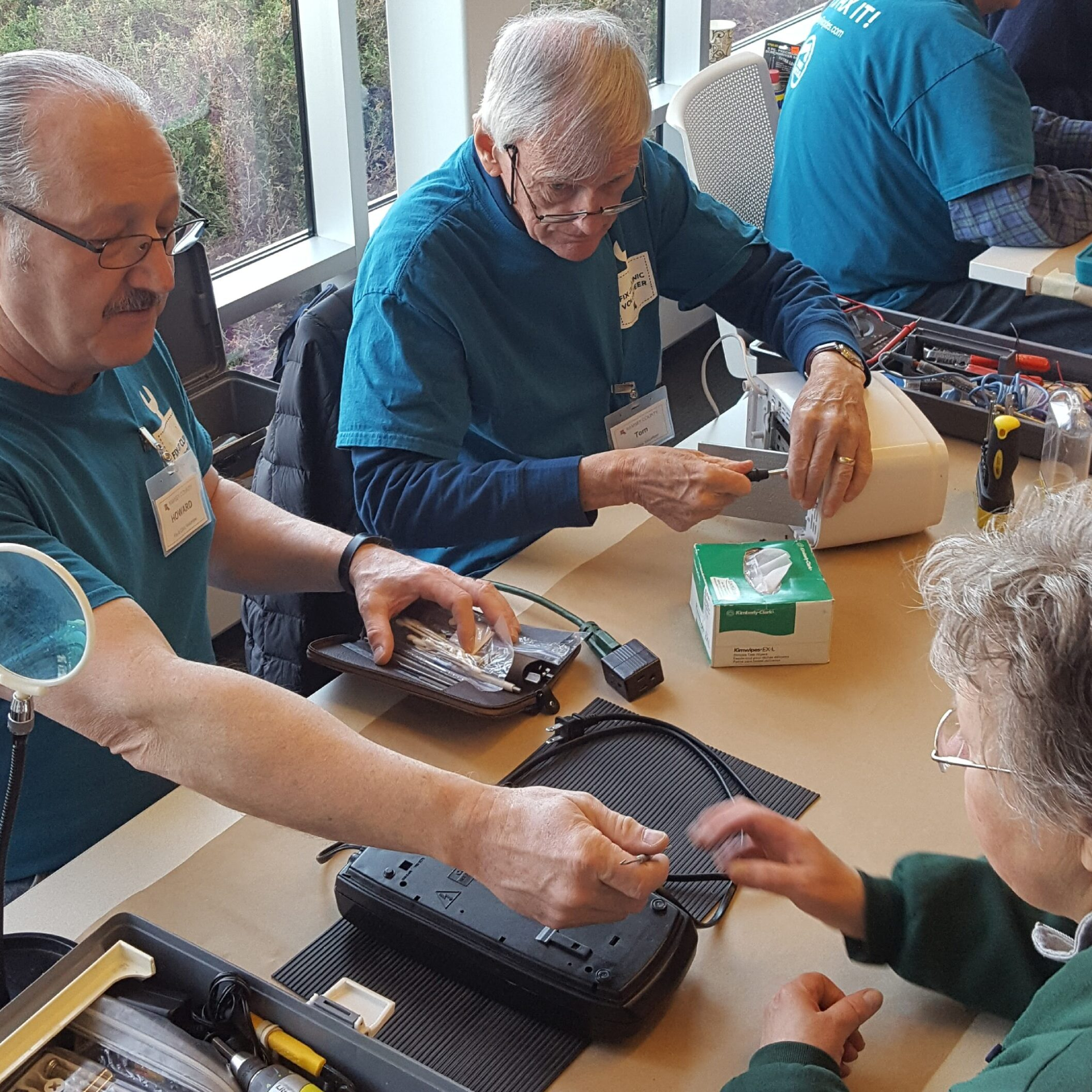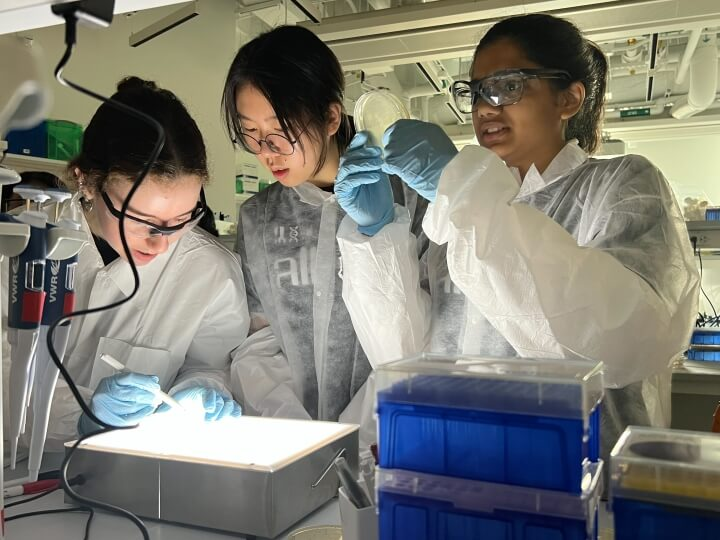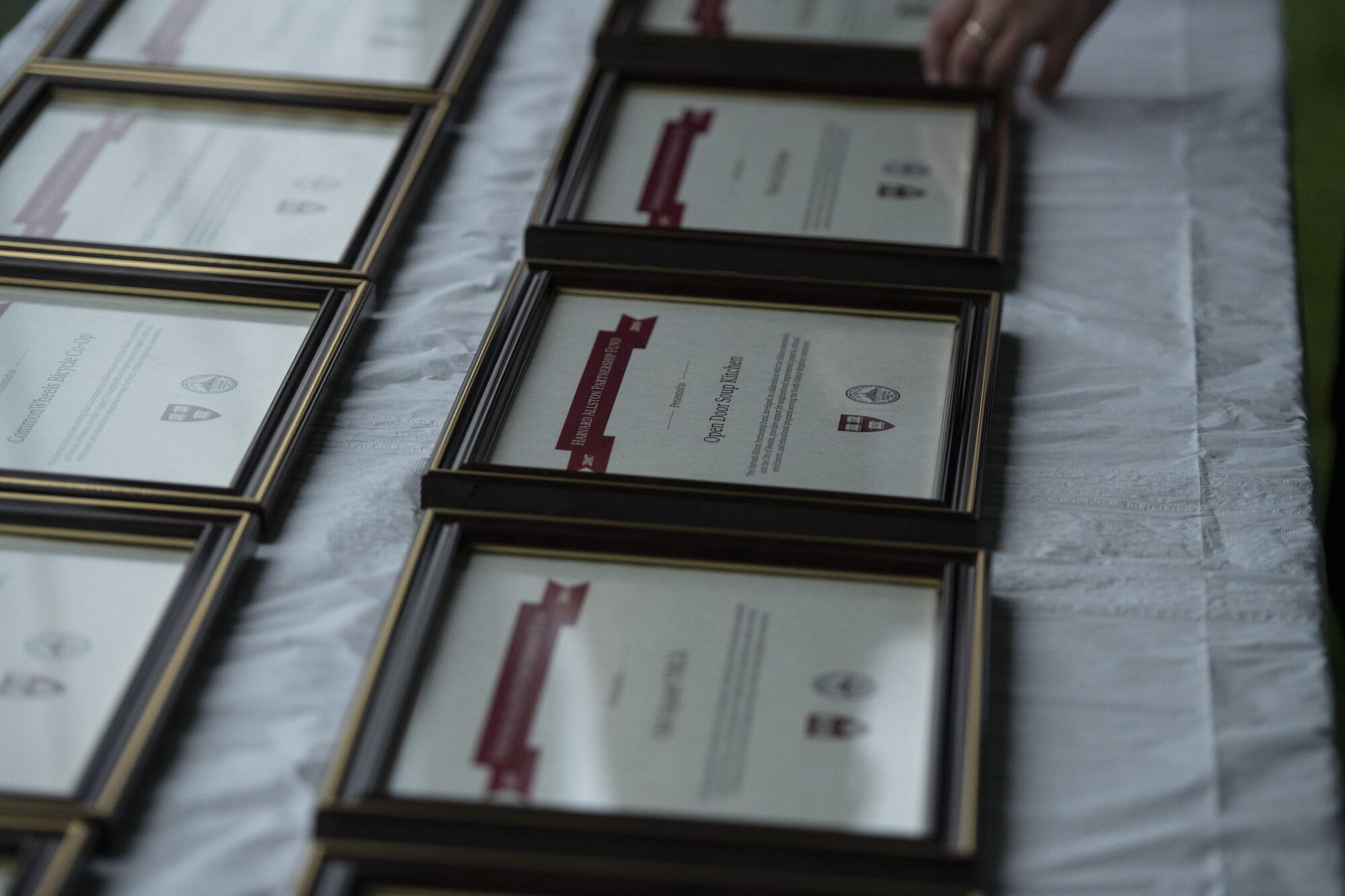
Fix-it Clinic is an innovative initiative hosted by Harvard University’s libraries that promotes community repair through hands-on workshops. These engaging repair workshops invite students, staff, and local residents to bring their broken items, from faulty electronics to torn clothing, for repair alongside volunteer coaches. By fostering a culture of DIY repair, Fix-it Clinics not only empower individuals with essential repair skills but also contribute to sustainability initiatives by encouraging the reuse and repurposing of items instead of discarding them. As library staff and community members collaborate in these interactive sessions, they help demystify the repair process while strengthening community bonds. The Fix-it Clinic exemplifies a growing movement toward resourcefulness and environmental responsibility in today’s consumer-driven society, making a positive impact on both participants and the environment.
The Fix-it Clinic serves as a vital platform for fostering a spirit of community engagement and resourcefulness through collaborative repair sessions. This unique program allows individuals to bring in a variety of damaged items, such as appliances and clothing, encouraging participants to explore the world of hands-on troubleshooting and repair. By harnessing the power of DIY repair workshops, this initiative aligns with broader community repair goals and sustainability efforts, creating an impactful learning environment. Participants are guided by knowledgeable volunteer coaches who share their expertise and insights, making the experience educational and rewarding. Overall, the Fix-it Clinic stands out as an excellent example of how collaborative problem-solving can be effectively utilized to rejuvenate and repair common household items, while also inviting everyone to take part in this meaningful journey.
Understanding the Impact of Fix-it Clinics on Community Repair
Fix-it Clinics play a significant role in fostering a culture of repair within communities, transforming the way individuals approach broken items. Not only do these workshops provide a space for hands-on learning, but they also encourage participants to shift their perspective on waste reduction. By engaging with experienced volunteers, attendees learn valuable DIY repair techniques, which empowers them to tackle repairs on their own in the future. This community repair initiative aligns with Harvard libraries’ broader mission of promoting accessibility and sustainability, instilling a sense of ownership and pride in one’s belongings.
As participants gather at the Fix-it Clinics, they become part of a larger movement that promotes sustainable living. Each repaired item represents a reduced contribution to landfills and a newfound appreciation for the longevity of products. Coaches, often volunteers from the local community, guide individuals not just in fixing their broken belongings, but also in understanding the repair process as an essential life skill. This community-driven approach cultivates a spirit of collaboration, allowing individuals to share their experiences and techniques, ultimately leading to a more resource-conscious society.
The Role of DIY Repair in Promoting Sustainability Initiatives
DIY repair culture has gained traction in recent years, particularly within educational institutions like Harvard, as part of sustainability initiatives aimed at reducing consumption and waste. The Fix-it Clinics exemplify this movement by providing a platform where community members can gather to learn the art of repairing rather than replacing items. This not only extends the life of materials but also promotes a mindset that values ingenuity and resourcefulness. Participants walk away with practical skills and a deeper understanding of how everyday items function, encouraging more sustainable choices in their daily lives.
Moreover, the Fix-it Clinic initiatives demonstrate the potential for libraries to serve as catalysts for change in sustainability practices. By offering opportunities for hands-on involvement, libraries engage community members in meaningful ways, bridging knowledge gaps about repair processes. This aligns with the core mission of fostering lifelong learning and environmental stewardship, positioning libraries as integral partners in promoting innovative solutions to modern-day challenges.
Engaging Creativity: The Variety of Items Repaired at Fix-it Clinics
The array of items brought to Fix-it Clinics is a testament to the creativity and resourcefulness of both participants and volunteer coaches. From household appliances to personal items like clothing and accessories, the diversity in repairs not only keeps the workshops exciting but also highlights the varied skills of the coaches involved. For instance, the experience gained from repairing everything from high-powered microscopes to children’s toys allows volunteers to share unique repair methods and problem-solving strategies with attendees, enriching the overall learning experience.
This diversity in repair projects fosters a dynamic environment where people can learn from real-world challenges. Coaches like Amy Van Epps bring specialized skills, such as sewing and electronics troubleshooting, which add valuable knowledge to the mix. Each clinic presents new challenges that keep both participants and coaches engaged, cultivating a sense of camaraderie within the community. Such interactions reinforce the notion that repair is not just about fixing items, but also about sharing experiences, knowledge, and encouraging sustainable practices.
Empowering the Next Generation Through Repair Skills
Empowerment lies at the heart of the Fix-it Clinic philosophy, particularly when it comes to equipping younger generations with essential repair skills. Many students view broken items as disposable, often opting for replacements instead of repairs. The Fix-it Clinics aim to change this mindset by showcasing the value in fixing what one already owns. By demystifying the repair process and making it accessible, these clinics prepare students for a more sustainable lifestyle, where repairing is prioritized over discarding.
Through hands-on participation, students gain not just practical skills, but also confidence in their ability to tackle repairs independently. Volunteer coaches, passionate about sharing their knowledge, create a welcoming atmosphere for students to explore DIY solutions. By encouraging challenges, such as repairing everyday electronics or clothing, these clinics cultivate a generation that understands the environmental impact of their consumption choices—laying the groundwork for a more sustainable future.
The Collaborative Learning Environment of Fix-it Clinics
Fix-it Clinics offer an unparalleled collaborative learning environment where knowledge and skills are freely exchanged. Participants are not just passive recipients of instruction; they actively engage with coaches and fellow attendees, creating a community of learners focused on repair. This setup enhances the overall experience, as individuals share tips and encouragement, transforming what could be a solitary task into a communal effort.
The collaborative nature of these workshops also helps foster friendships and connections among participants, making the repair process a social event as much as a practical one. Those who may have walked in with frustrations about broken items leave not only with repaired belongings but also with a sense of belonging within the community. The interactions that occur during the clinics reflect the transformative power of working together toward a common goal, ultimately reinforcing the value of community repair.
Innovative Solutions: Fix-it Clinics in the Age of Technology
In an era dominated by rapid technological advancements, Fix-it Clinics have adapted to incorporate innovative solutions that appeal to a tech-savvy audience. The integration of digital tools and resources allows participants to diagnose issues more accurately and understand modern appliances better. By blending hands-on learning with current technology trends, the clinics ensure that they remain relevant to both younger participants and seasoned repair enthusiasts alike.
Furthermore, the embrace of technology in these repair workshops can serve as an educational opportunity that extends beyond the immediate repair of items. Participants learn to appreciate the intricacies of today’s gadgets while also discussing broader implications of technology consumption and sustainability. Thus, Fix-it Clinics not only address immediate repair needs but also contribute to a wider dialogue about responsible tech usage and environmental stewardship.
The Role of Volunteer Coaches in Fix-it Clinics
Volunteer coaches serve as the backbone of the Fix-it Clinics, bringing their knowledge, experience, and passion for repair to the community. Their willingness to share skills and mentor participants embodies the spirit of collaboration that these clinics aim to promote. Coaches come from diverse backgrounds, often with unique specialties that enhance the learning experience and provide a richer, more comprehensive perspective on repair processes.
Moreover, the role of these coaches extends beyond mere instruction. They inspire and empower individuals to embrace a mindset of problem-solving and resourcefulness. By guiding participants through the repair journeys, coaches foster not only technical skills but also confidence. This mentorship aspect is crucial, as it helps build a community where people feel supported in taking on repair tasks, cultivating a culture of DIY repair and sustainability.
Creating Lasting Change: The Future of Fix-it Clinics
The future of Fix-it Clinics looks promising as they continue to attract new participants and volunteers alike. With a focus on community engagement and sustainability, these clinics are positioned to evolve alongside the changing needs of society. As awareness about waste reduction and environmental responsibility grows, more individuals are likely to seek out resources like the Fix-it Clinics, highlighting the importance of repair workshops in fostering a culture of sustainability.
As they continue to expand their reach, Fix-it Clinics can play a vital role in educational initiatives, collaborating with local schools and community organizations to engage younger audiences. By introducing repair concepts to students early on, these clinics can empower the next generation to embrace repair culture, ultimately leading to a more sustainable society that values resourcefulness and ingenuity.
Finding Joy in Repair: Community Experiences at Fix-it Clinics
Participants at Fix-it Clinics often express joy and satisfaction that comes from seeing their broken items restored to functionality. The collective experience of repairing alongside others fosters a sense of community that transcends the individual act of fixing. Whether it’s an old CD player or a favorite pair of jeans, the excitement of seeing something once deemed unfixable come back to life creates a shared celebration among all involved.
Moreover, these clinics not only provide technical skills but also cultivate positive emotions associated with the repair process. The camaraderie developed during these workshops makes learning feel less like a chore and more like a fulfilling experience. The joy of repair resonates deeply within the community, encouraging attendees to remain engaged and spread the word about the values of sustainability and resourcefulness.
Frequently Asked Questions
What is a Fix-it Clinic and how does it contribute to community repair initiatives?
A Fix-it Clinic is a collaborative workshop organized by Harvard Libraries where community members can bring their broken items such as electronics, clothing, and small appliances to be repaired. Volunteer coaches guide participants through the repair process, promoting DIY repair skills and fostering a culture of sustainability among attendees.
How does Fix-it Clinic at Harvard support sustainability initiatives?
The Fix-it Clinic at Harvard supports sustainability initiatives by providing a platform for individuals to fix broken items instead of discarding them. This approach reduces waste, encourages a culture of repair, and empowers community members with hands-on skills critical for maintaining and prolonging the lifespan of their possessions.
Who can participate in the Fix-it Clinics at Harvard Libraries?
Anyone can participate in the Fix-it Clinics at Harvard Libraries, including students, staff, and members of the public. The clinics are designed to engage a diverse audience and foster community repair experiences while imparting valuable DIY repair knowledge.
What types of items can be repaired at a Harvard Fix-it Clinic?
At a Harvard Fix-it Clinic, participants can bring a wide range of items for repair, including electronics, clothing, kitchen appliances, toys, and more. However, there are restrictions on certain items like oil- or gas-powered devices due to safety concerns.
Are there any costs associated with attending a Fix-it Clinic at Harvard?
No, attending a Fix-it Clinic at Harvard is free of charge. The initiative aims to foster community engagement and promote repair skills without financial barriers.
How often are Fix-it Clinics held at Harvard Libraries?
Fix-it Clinics are held at least once per semester at Harvard Libraries, with the program consistently active since its inception in 2018, including during virtual formats during the pandemic.
Can I volunteer at a Fix-it Clinic in Harvard Libraries?
Yes, community members are encouraged to volunteer at the Fix-it Clinics. Those interested in sharing their repair expertise can join as volunteer coaches, helping others learn about the repair process and contribute to the community repair mission.
How does Fix-it Clinic enhance DIY repair skills among participants?
Fix-it Clinic enhances DIY repair skills by teaching attendees hands-on techniques and critical thinking involved in repairing items. Volunteer coaches guide participants through the process, empowering them with the knowledge and confidence to tackle future repairs independently.
What inspired the creation of the Fix-it Clinic at Harvard?
The Fix-it Clinic concept, inspired by the initiatives of MIT alumnus Peter Mui, aligns with Harvard Libraries’ mission to promote wellness and DIY culture. The libraries sought to offer resources and educational opportunities that allow community members to engage in hands-on repair activities.
How does the Fix-it Clinic model differ from traditional repair services?
Unlike traditional repair services that offer guaranteed fixes, the Fix-it Clinic focuses on community learning and collaboration. Volunteers assist participants in attempting repairs themselves, emphasizing empowerment and skill-building over simply fixing items.
| Key Point | Details |
|---|---|
| Fix-it Clinic Overview | Harvard’s Fix-it Clinics are community events promoting repair skills, hosted at Cabot Science Library. |
| Community Collaboration | Library staff and volunteers guide participants in repairing various broken items. |
| Educational Goals | Focus on empowering individuals with skills to repair their belongings instead of discarding them. |
| Event History | Started five years ago at Harvard, inspired by a nationwide initiative originally devised by Peter Mui. |
| Participant Engagement | Gradually increasing student participation and community involvement in repair activities. |
| Repair Variety | Clinics accept a wide range of items, from electronics to clothing, reinforcing the idea that almost anything can be repaired. |
| Recent Developments | Continued hosting of clinics, including virtual events during the pandemic and a new location in the Science and Engineering Complex. |
| Mindset Shift | Encouragement for participants to develop repair skills and rethink the cycle of consumerism. |
Summary
The Fix-it Clinic at Harvard represents an essential initiative in fostering a culture of repair and sustainability within the community. By providing hands-on repair experiences, the clinic empowers participants to not only fix their belongings but also equips them with the skills and confidence necessary to tackle their future repair needs. This approach not only minimizes waste but also promotes a collective responsibility towards our items, turning a throwaway culture into one of reuse and resourcefulness.







